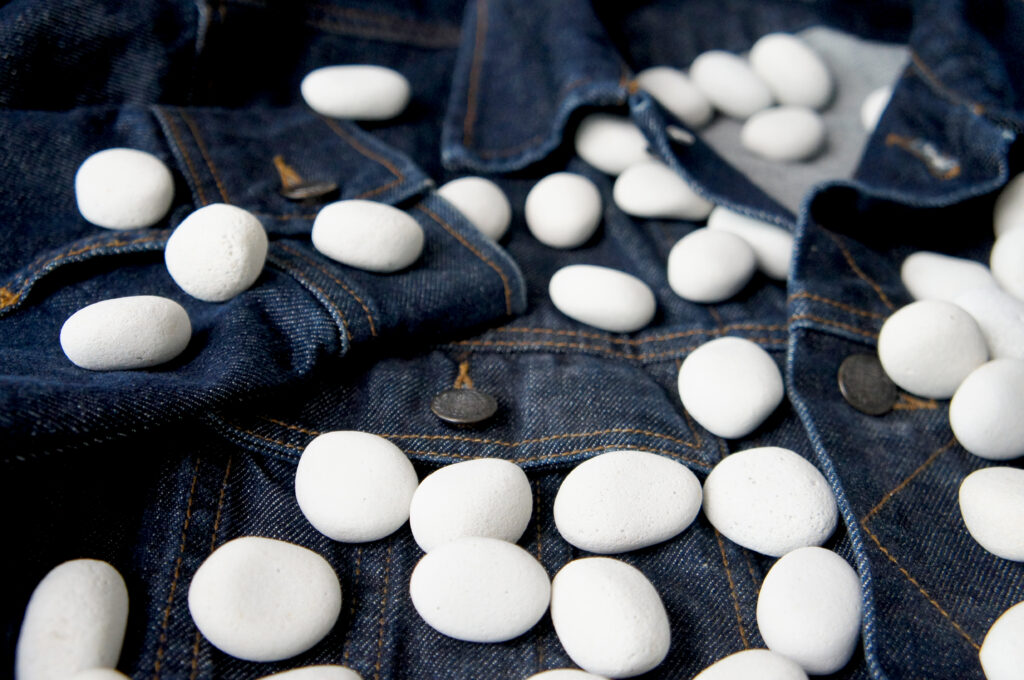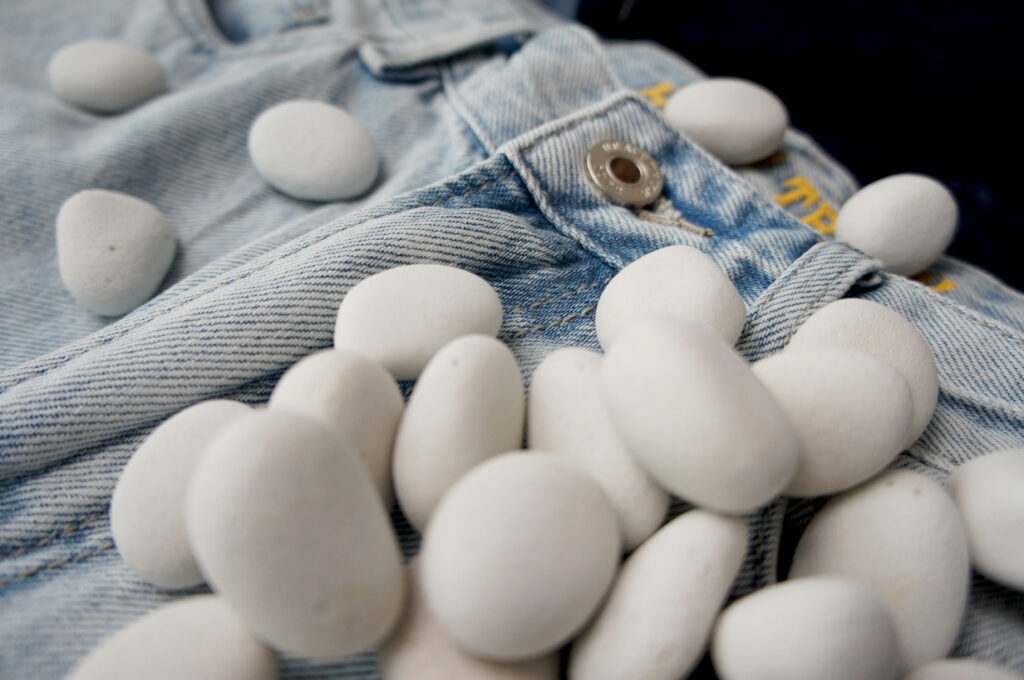Pumice stone is a unique natural material widely used in the stonewashing process of denim manufacturing. This technique, which creates the iconic faded look of denim, relies heavily on the abrasive properties of pumice stone.
1. Creating a Worn and Faded Effect
In the stonewashing process, pumice stones are tumbled with denim fabric in large industrial washing machines. The rough and abrasive surface of the pumice stone wears down the denim, creating irregular fading patterns that give each pair of jeans a unique, worn appearance. This effect not only adds style but also imparts individuality to every pair of jeans.

2. Softening the Fabric
Beyond creating a faded look, pumice stone also helps soften the denim fabric. Denim is typically quite stiff, but the friction caused by tumbling with pumice stones helps break down the fibers, making the fabric softer and more comfortable to wear. This softening process is particularly important for achieving the vintage look and feel that many consumers desire in their denim.
3. Enhancing Durability
While the stonewashing process does cause some wear to the fabric, pumice stones help remove weak fibers from the surface, leaving behind a stronger, more durable material. This process ensures that the jeans not only look stylish but are also more resistant to everyday wear and tear.
4. Cleaning and Decontaminating
Pumice stone also plays a role in cleaning the denim during the stonewashing process. It effectively removes dust, oil stains, and other impurities from the fabric, ensuring a high-quality finish. This cleaning action helps produce a pristine product ready for the market, enhancing the overall appeal of the jeans.

5. Environmental Benefits and Sustainability
As a natural material, pumice stone is non-toxic and free from chemical additives, making it an environmentally friendly choice for stonewashing. Compared to chemical treatment methods, using pumice stone has a lower environmental impact, aligning with modern sustainability standards. Additionally, the development of alternatives such as high-polymer ceramic pumice stones has further reduced waste and enhanced the eco-friendliness of the stonewashing process.
Conclusion
Pumice stone plays a crucial role in denim manufacturing, contributing to the distinctive style, softness, and durability of jeans. Its environmental benefits and support for sustainable practices make it an indispensable material in modern denim production. As technology advances and environmental demands increase, the use of pumice stone and its alternatives in denim manufacturing will continue to evolve, meeting the market’s need for high-quality, eco-friendly products.
For readers interested in the craft of denim washing, you can visit the Eco Stone Wash website at www.ecostonewash.com, or follow their Facebook page “Ecostonewash” for more in-depth information.

